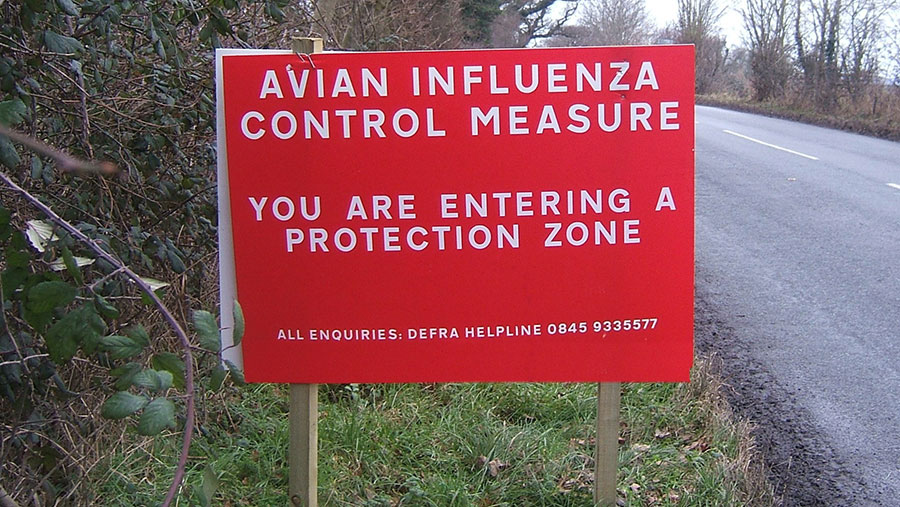Avian flu in Suffolk takes total cases to 100
 © Adobe Stock/Leslie Batchelder
© Adobe Stock/Leslie Batchelder The 2021-22 avian flu outbreak has passed another grim milestone after the 100th case was confirmed by Defra on Tuesday 1 March.
This winter’s outbreak had long eclipsed any seen previously in the UK, and the latest case means numbers are four times the previous high seen in 2020-21.
See also: Guidance on avian flu with England’s chief vet
The 100th case was found in a commercial flock in Redgrave, mid-Suffolk. It was the seventh case in little over a week. In the past seven days of February outbreaks were seen in the west, east and north of England, while flocks in Wales also succumbed.
The other cases during the week were on:
- 26 February Elmswell, mid-Suffolk
- 25 February Ledbury, north Herefordshire
- 23 February Blaydon, Tyne and Wear
- 21 February Newtown, Powys
- 21 February Welshpool, Powys
- 21 February Grimsby, Lincolnshire.
All birds on affected farms will be or have been humanely culled to help limit the spread of the disease.
In addition, farms in the area where the latest cases were found will be placed under 3km-wide protection zones and 10km surveillance zones.
Key risk points
- Contact with infected surfaces, wild bird droppings, equipment and bedding – the avian flu virus can survive for 21 days at 4C
- Failure to communicate biosecurity checklists to all staff, including casual and weekend shift workers
- Poor hygiene on units shared with operations such as packing or incineration
- Dirty boots and overalls, used across units
- Poor foot-dip regimes and disinfectant management
- Lack of rigour in cleaning and disinfection
- Badly maintained buildings allowing water, vermin and birds into sheds
Predictions
The rise in weekly case numbers has followed Defra predictions of a second wave of cases in February.
Speaking earlier this year, chief vet Christine Middlemiss explained that the first wave occurred when infected migratory birds first arrived to overwinter.
But a second wave, caused by reinfections of domestic wild birds, typically begins in February, Ms Middlemiss said.
She has urged poultrykeepers not to drop their guards and urged them to review, tighten and rigidly apply biosecurity measures.
Any review must look at measures inside the unit, as well as around the perimeter, Ms Middlemiss said.
She explained that officials who investigated outbreaks often found there was an over-reliance on perimeter biosecurity measures.
While these were generally robust, gaps in internal biosecurity and a lack of understanding of the virus had allowed it to take hold.
Outbreaks had been traced back to risks from infected bedding, inadequate building maintenance and poor communication between staff, Ms Middlemiss said.
Contacts and information
If you find dead swans, geese, ducks or other wild birds, you should report them to the Defra helpline on 03459 33 55 77.
Birdkeepers must report suspicion of disease:
- England Defra Rural Services Helpline on 03000 200 301
- Wales 0300 303 8268
- Scotland Contact the local field services office
- Northern Ireland 0300 200 7840.
Flock-keepers can check whether their farm lies within a zone via interactive maps:
